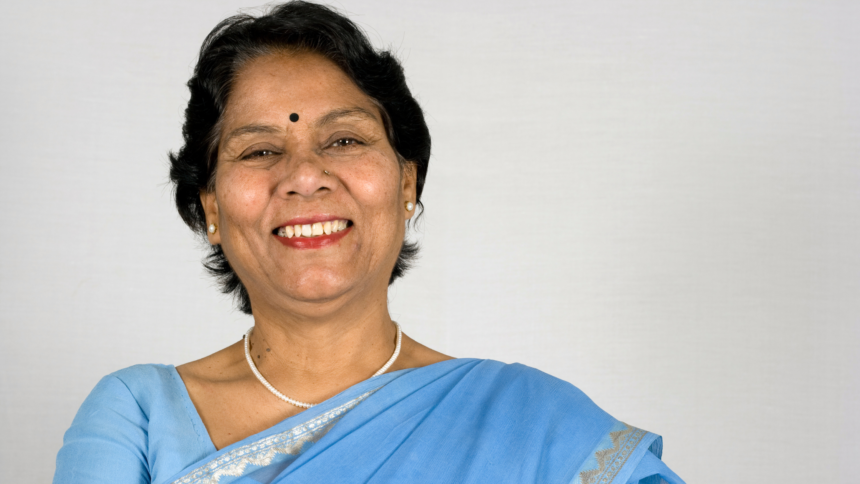A non-descent vaginal hysterectomy (NDVH) is a specialized kind of uterus removal surgery (hysterectomy) which is the most recommended way to perform a hysterectomy.
“Most people think that laparoscopic surgery is the preferred route for a hysterectomy, but this is actually a myth. A vaginal hysterectomy can be done in many situations, even those with uterine prolapse, as long as the surgeon is skilled at it,“ shares Dr. Rinku Sen Gupta Dhar, Senior Consultant, Obstetrician – Gynecologist at Madhukar Rainbow Children’s Hospital in South Delhi.
What is NDVH?
An NDVH is a type of vaginal hysterectomy in which the uterus is removed through the natural opening (vagina) instead of the abdomen. Since this involves no incisions, it is a safe method that results in the least visible scars. It is referred to as ‘scarless surgery’ for this reason.
A hysterectomy is a major operation like any other surgery and is recommended when women do not plan to have more children and have attempted medical and non-surgical options with little relief for abnormal bleeding, fibroids etc.
What are the types of hysterectomy?
There are three types of hysterectomy:
- Total hysterectomy, in which the uterus and cervix are removed
- Subtotal hysterectomy, in which only the uterus is removed
- Panhysterectomy, in which the uterus, fallopian tubes and ovaries are removed
The types of hysterectomy are different from the routes through which the surgery is performed.
A hysterectomy can be performed using the following routes:
- Laparoscopically, which involves the use of laparoscopic instruments to remove the uterus through small incisions
- Vaginally, in which the uterus and cervix are removed through the vagina
- Abdominally, where a cut/ incision (about 8-10 cms long) is made on the abdomen and the uterus is removed through this incision
Which surgery is best for uterus removal?
The best surgery for uterus removal depends on the condition for which it is being done. That said, a vaginal hysterectomy, when feasible, is considered the best route for a hysterectomy as per the American College of Obstetricians and Gynecologists, because it is done through a natural opening, without the need for incisions.
In conditions where a vaginal hysterectomy is desirable but not feasible, a laparoscopic hysterectomy is preferred.
However, in the case of a bulky uterus or suspicion of cancer, an abdominal hysterectomy may be chosen over a laparoscopic surgery.
When is an NDVH suggested?
You may be advised a non-descent vaginal hysterectomy in these conditions:
- Fibroids
- Heavy bleeding/abnormal uterine bleeding
- Endometriosis
A non-descent vaginal hysterectomy (NDVH) is best done by an experienced gynecologist who has previously performed the surgery with skill and ease as it requires precision to remove the uterus through the natural opening.
“Some routes of hysterectomy are more popular than others, and so we understand that patients often have doubts regarding the surgery. This is why we counsel patients so they understand the benefits and risks involved well before consenting to surgery. Most times, with detailed counseling, patients consent to the procedure and have a smooth experience,” says Dr. Rinku.
What are the benefits of an NDVH surgery?
The benefits of the procedure include:
- Zero stitches or scars
- Less complications
- Short hospital stay and fast recovery
- Minimal post-op pain
Sometimes, the cost of the NDVH surgery may also be comparatively less than other hysterectomies.
The risks or complications with NDVH surgery include bleeding or infection, which are typically associated with other surgeries.
The benefits of the procedure also help in a shorter recovery period.
Recovery time after NDVH procedure
Many women are worried about the time they will need to take off before returning to work.
Usually a 2 day hospital stay is suggested, but this may differ depending on your post-operation progress.
In most cases, you can go back home without requiring support and can walk, climb stairs and carry on with your daily routine without any difficulty.
Is NDVH surgery safe?
An NDVH surgery is safe when performed by a qualified gynecologist with superior surgical skills.
As per studies, “patients accept the surgery with an open mind after proper counseling and detailing of the procedure. Most abdominal hysterectomies can be converted successfully to NDVH in technically feasible cases by experienced hands”
Suhasini Majumdar’s experience with NDVH
Suhasini Majumdar, 53, visited us when she experienced heavy postmenopausal bleeding that was unlike a regular period. Dr. Rinku Sen Gupta Dhar suggested an ultrasound to detect the cause of bleeding.
The scan revealed several fibroids following which Suhasini was advised medication and follow up after a month.
“We observed that Suhasini wasn’t responding well to the medical line of treatment, and eventually suggested an NDVH,” says Dr. Rinku.
Suhasini was apprehensive about the surgery, but was informed about the NDVH procedure, surgery steps, benefits, risk and post-op recovery. She was glad that there would be no visible scars, less pain and a short hospital stay.
She decided to proceed with the surgery because of the immense faith she had in her doctor.
Sure enough, the procedure went well, and she felt a lot better after she was discharged.
“I hadn’t heard of the surgery before, which is why I had many questions. My doctor understood my concerns and gave me ample time to discuss and process all the information. I was back on my feet soon after the surgery and could return to work symptom-free!” shares Suhasini in a follow up visit.
Conclusion
It is common to fear a surgery you may know little about, but it is worth discussing your options with your doctor to save time, effort and trouble.

Medically Reviewed by Dr. Rinku Sen Gupta Dhar
Senior Consultant Obstetrician – Gynecologist
MBBS, MD
25+ years of experience

